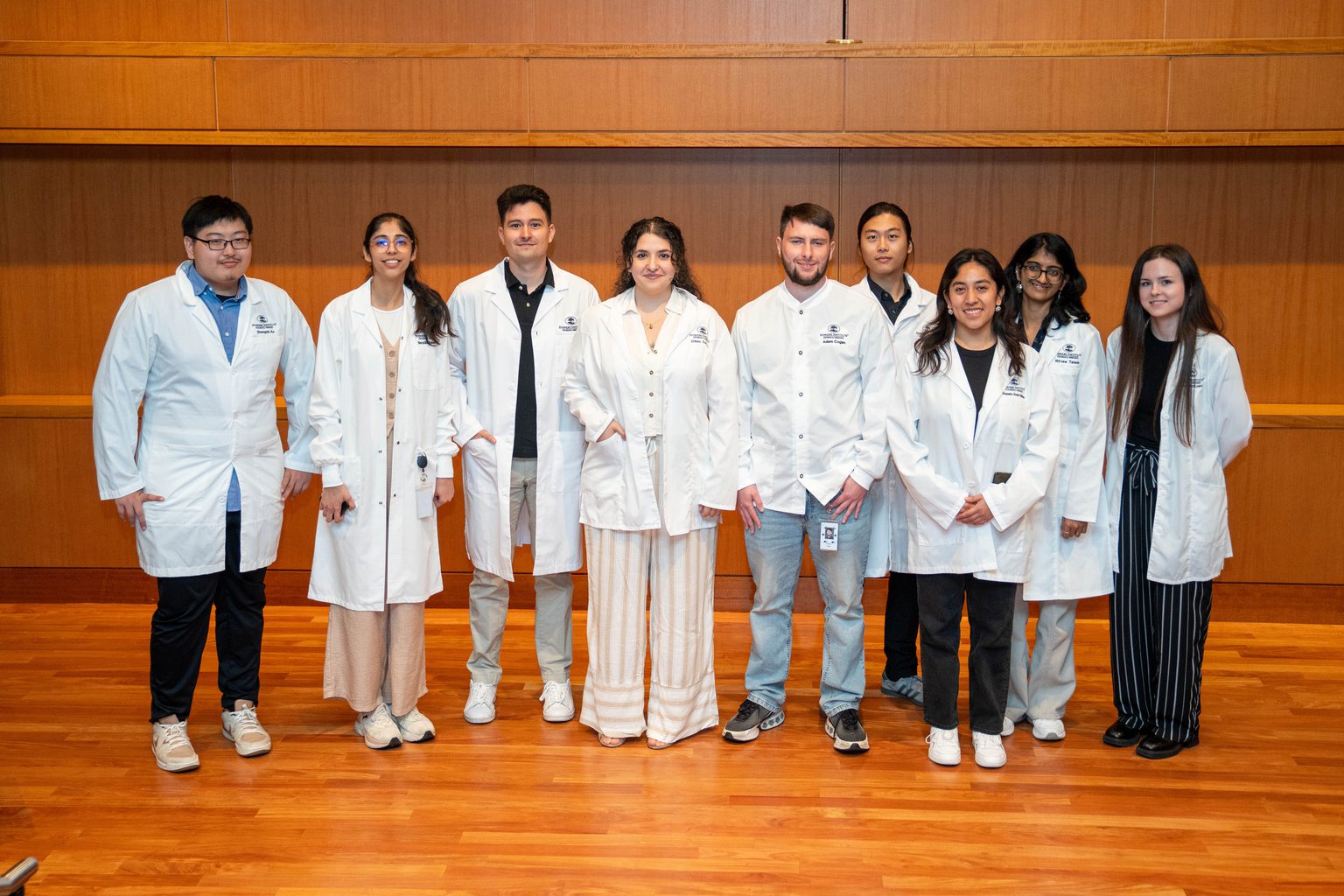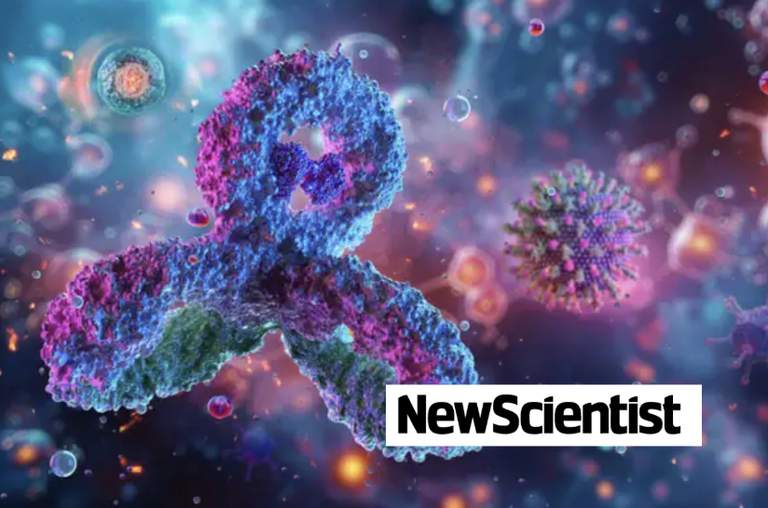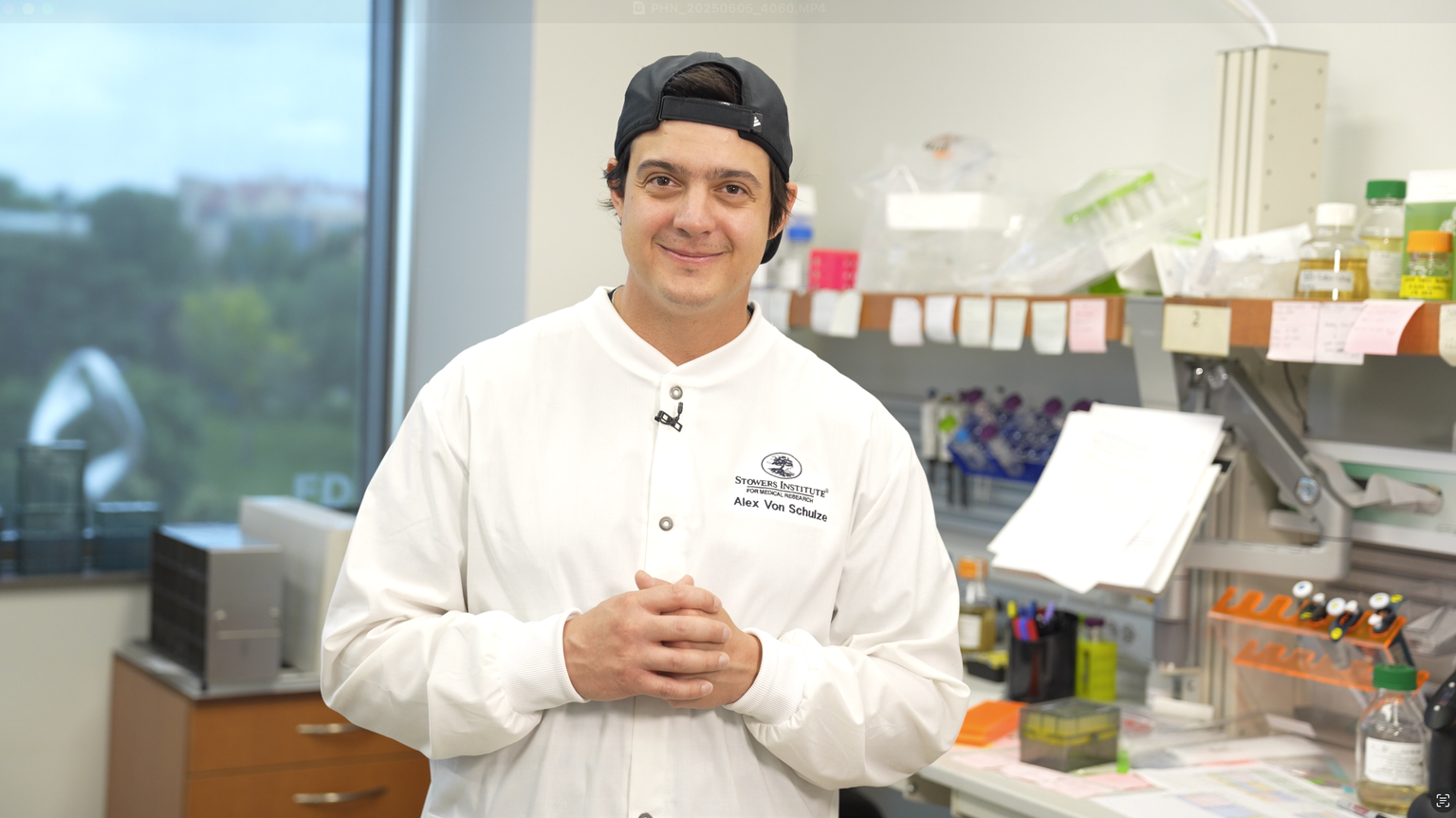News

09 October 2025
2025 Lab Coat Ceremony Welcomes Graduate Students To Their Thesis Labs
An annual tradition marks the start of scientific discovery for the 2024-2025 class of Stowers Graduate School students.
Read Article
News
Five scientists' prestigious awards are a testament to the innovative, curiosity-driven, and profound impact and scope of foundational biological research the Institute is committed to fostering.
Five postdoctoral researchers from four labs at the Stowers Institute for Medical Research received prestigious awards to enhance their research and training. External project funding serves to recognize early career scientists’ potential for contributing valuable knowledge within their respective fields of study and to biology as a whole.
In January, Anna Klompen, Ph.D., a postdoctoral research associate in the lab of Investigator Matt Gibson, Ph.D., received the National Science Foundation (NSF) Postdoctoral Research Fellowship in Biology. The award provides two years of funding for innovative research that illuminates fundamental rules of biology. Klompen is investigating how different types of cells comprising the stinging organelles, or nematocysts, of the sea anemone, Nematostella vectensis, are assembled to gain insight into how complexity arises and evolves in animals. Proteomics, genomics, imaging, and sequencing tools will be used to unravel the molecular and regulatory dynamics governing nematocyst structure and function.
Also from the Gibson Lab, Postdoctoral Research Associate Emma Rangel-Huerta, Ph.D., obtained the Society for Developmental Biology’s Emerging Research Organisms grant in March. Using gene silencing and editing techniques including CRISPR/Cas9, which was first applied to Nematostella in the Gibson Lab, Rangel-Huerta is aiming to establish the rice coral, Montipora capitata as a new research system for studying development within complex marine ecosytems. The award provides one year of research support toward understanding coral development that may be applicable for developing strategies to restore coral reefs endangered by climate change and pollution.
In April, Postdoctoral Research Associate Alex Von Schulze, Ph.D., from the lab of Associate Investigator Randal Halfmann, Ph.D., earned the National Institutes of Health F32 fellowship to investigate how irreversible changes in protein shape under supersaturated conditions drives aging. This prestigious three-year fellowship will aid Von Schulze in using sequencing, epigenetic, and cytometry techniques on donated human fibroblast cells to determine the kinetic and thermodynamic factors that impact protein solubility and their aggregation in cells as a function of age. The goal of this research is to find a thermodynamic explanation for why humans age, potentially discovering ways to slow down age-related diseases.
Ivan Candido-Ferreira, Ph.D., a postdoctoral research associate in the lab of Investigator Tatjana Sauka-Spengler, Ph.D., joined the 2023 class of Grass Fellows at the Marine Biological Laboratory (MBL). The Grass Fellowship provided Candido-Ferreira funding to spend the summer at the MBL studying neural crest cells and the gene regulatory networks governing them in the skate fish, Leucoraja erinacea. This work will offer insight into jaw evolution in vertebrates and a genomic basis for neural crest development.
Postdoctoral Research Associate Lorena Maili, Ph.D., from the lab of Investigator Paul Trainor, Ph.D., received a grant in July from the American Association of Anatomy. The one-year award will enable Maili to investigate the genetic, cellular, and biochemical mechanisms that underlie craniofacial development. The project involves generating and analyzing mouse models of disease to gain a deeper understanding of congenital conditions that manifest as craniofacial anomalies, potentially guiding new therapies and treatments in humans.
The prestigious awards received by these five scientists is a testament to the innovative, curiosity-driven, and profound impact and scope of foundational biological research the Institute is committed to fostering.
News

09 October 2025
An annual tradition marks the start of scientific discovery for the 2024-2025 class of Stowers Graduate School students.
Read Article
In The News

17 September 2025
From New Scientist, Inflammation is a vital part of the immune response, but it seems that the system can sometimes go awry, resulting in chronic inflammation that has been linked to conditions such as cancer.
Read Article
News

29 July 2025
"Most of my best ideas—and opportunities—came from conversations with other scientists. Share data, workshop problems, collaborate. It’s the single most valuable habit I’ve cultivated."
Read Article